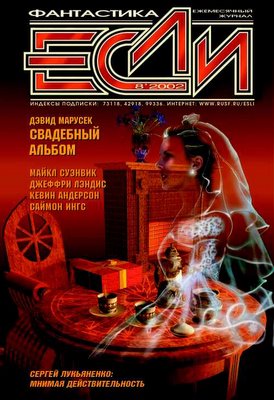This is probably of no interest to anyone except those folks who like to ask authors about their writing process.
I have always written the first couple drafts of my fiction in longhand and only keystroked subsequent drafts. This usually raises eyebrows, and because it takes so long for me to finish a piece, people are always urging me to keystroke from the outset. My reasoning for writing in longhand is that because the first couple of drafts are only rough sketches anyway and that few strings of words longer than a phrase actually survive to the next draft, keystroking my early drafts wouldn't benefit from the timesaving advantages of word processing.
Also, my early manuscripts are replete with marginalia, arrows, multiple word choices, etc. and end up looking almost like drawings. I haven't found a word processor yet that gives me that kind of freedom. When you think about it, word processors are designed for *finished* work, with neat margins, single narrative tracks, everything in its place. Which leads to perhaps the most ephemeral (but all-important) disadvantage of word processing--The closer my work comes to being finished, the more constrained is my imagination. A page of typeset text feels like a cage. I have found that even late drafts, ones that are already keystroked, often benefit if I write them out in longhand again. This is not simple editing on the computer but reimagination. Computer editing suffers from the same features that are its greatest advantage--the words are already there on the page. You might rearrange them, delete some, add others, but essentially the sentence/paragraph structure is already locked in, as well as the thought, image, juice (or lack thereof). But when you put the text aside and write from scratch, from memory, wonderful things happen. Knots are loosened. The other shoe drops. Voices in the back of the room speak up. And more often than not, the best and truest portions of the earlier draft remain.
All this being said, with the writing of Book Two of COUNTING HEADS, I am going to give it a try. For the last week I have been keystroking first draft material (or nearly first draft) right into my iBook. I'm going to see if it makes any difference, if I can still pull a rabbit out of a hat.
Second trick
This one is probably more responsible for my slow output than word processing and just as tied up with creativity. The matter of knowing the story before I write it. It seems there are two types of writers, those who outline and those who don't (I am counting a detailed synopsis as an outline). Those writers who don't outline claim that their creativity would be shackled by an outline, that characters would never breathe life if they had to stick to a predetermined script, that plot surprises would be forced and mechanical. Better to take an "organic" approach. If the writer doesn't know what's going to happen, the work takes on a life of its own, goes deeper, is wiser, becomes real.
This is all fine and good, and I believe it. There's only one problem with my using this approach--at some point the story has to conclude. If a writer has a good sense of story, that is, knows how to follow the throughline and recognizes its climax, then organic plotting may be the way to go. But plotting has never been my forte. Without a sense of where the story is going, I find myself writing writing writing and only after many drafts figuring out where the story is. I end up with crates of cut scenes, characters, whole chapters. And (combined with the longhandy thing) a piece that should take months ends up taking years to complete.
At the same time, I've rarely been able to create an outline before writing. Since way back with my early short stories I have tried and mostly failed. My solution has been to practice "serial plotting." That is, to write a synopsis that puts down everything I "know" about the story, which usually doesn't include the ending, then to write the story until it veers so much from the synopsis that I have to write a new synopsis and repeat the writing-plotting-writing until it seems finished. But even then I've been known to cut whole parts out of a story and redo. For example, in "The Wedding Album" I cut out the entire middle of the story. I had a dynamite beginning and ending, but the middle seemed to drift off somewhere. So I cut it out and let the whole project simmer for a year before taking it up again and reimagining the "donut hole."
I am pleased to report that I spent two weeks last month writing a synopsis of Book 2, including the climax and ending. It's fifteen pages long, and I feel it's complete. I'm quite proud of it. It seems open-ended enough for the characters to breathe, but concrete enough for me to jump into scenes already knowing where they're going. And, for the first time, I feel I have a handle on the plot and its pacing. Of course it's not cast in stone. I can and will massage it, change it if necessary, toss it out if my Muse demands it, but for now it's a life raft in a sea of possibilities.
Unfortunately, I can't post it here for it's one long spoiler, but I can pass along the book's working title--THE DAY OF THE OSHIP.

